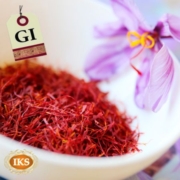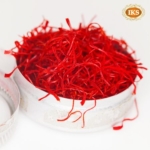Kashmir Saffron GI Tag: A Heritage of Taste and Quality
Kashmir Saffron GI Tag – Introduction
Kashmir Saffron GI Tag – Kashmir saffron, known for its unique flavor, aroma, and vibrant color, has long been celebrated as one of the world’s most exquisite spices.
In recognition of its exceptional qualities and the cultural heritage surrounding its cultivation, Kashmir saffron was granted the Geographical Indication (GI) tag in 2020.
This article explores the significance of the Kashmir saffron GI tag, its historical context, the benefits it brings to local farmers, and the challenges ahead.
Experience the Essence of Kashmir: Indulge in the unique flavor and aroma of authentic Kashmir saffron. Order your supply today and elevate your culinary creations!
Understanding Geographical Indication
A Geographical Indication (GI) tag is a sign used on products that have a specific geographical origin and possess qualities or a reputation that are due to that origin.
The GI tag serves to protect the identity of the product, ensuring that only those products that come from a specific region and meet certain standards can be marketed under that name.
This legal recognition not only helps safeguard traditional knowledge and practices but also enhances the market value of the product.
Historical Context
Saffron cultivation in Kashmir dates back over 2,000 years, with historical references found in ancient texts and scriptures.
The region’s unique climatic conditions, characterized by cold winters and warm summers, along with its rich soil, create an ideal environment for saffron crocus (Crocus sativus) cultivation.
Traditionally, saffron has been harvested in the autumn months, with the delicate flowers handpicked during the early hours of the morning.
Support Local Farmers: By choosing Kashmir saffron, you’re not just enhancing your dishes; you’re supporting the livelihoods of local farmers who cultivate this exquisite spice. Buy local, buy Kashmir saffron!
The Significance – Kashmir Saffron GI Tag
- Quality Assurance: The GI tag ensures that only saffron produced in the Kashmir Valley can be marketed as “Kashmir saffron.” This helps maintain high standards of quality, as the tag is contingent upon specific production practices.
- Economic Benefits: By protecting the identity of Kashmir saffron, the GI tag enhances its market value, benefiting local farmers and producers. It opens up new avenues for marketing, both domestically and internationally, potentially increasing their income.
- Cultural Heritage: The GI tag recognizes the rich cultural heritage surrounding saffron cultivation in Kashmir. It highlights the traditional methods employed by local farmers, which have been passed down through generations.
- Consumer Trust: The authenticity associated with the GI tag fosters consumer trust. Buyers can be assured that they are purchasing genuine Kashmir saffron, free from adulteration.
Role of Local Farmers
The introduction of the GI tag has empowered local saffron farmers, who often struggle against competition from cheaper, lower-quality saffron produced in other regions.
With the GI tag, farmers are encouraged to adopt sustainable farming practices, ensuring the preservation of their land and heritage.
Furthermore, awareness campaigns and training programs have been initiated to educate farmers about quality standards and effective marketing strategies.
Embrace Heritage and Quality: Discover the rich cultural heritage of Kashmir saffron. Look for the GI tag to ensure you’re purchasing the highest quality saffron that honors tradition.
Challenges Ahead
Despite the potential benefits, the path to success for Kashmir saffron with its GI tag is not without challenges:
- Climate Change: The changing climate poses a significant threat to saffron cultivation. Unpredictable weather patterns can adversely affect the yield and quality of saffron.
- Competition: Lower-priced saffron from other regions, including Iran and Spain, remains a challenge. Effective marketing and promotion are essential to position Kashmir saffron as a premium product.
- Adulteration Concerns: Protecting the integrity of the GI tag requires vigilant inspection and regulation to prevent adulteration and misrepresentation in the market.
- Infrastructure Development: Improving infrastructure for storage, processing, and transportation is crucial for enhancing the marketability of Kashmir saffron.
Conclusion
The GI tag for Kashmir saffron is a significant milestone in recognizing the cultural and economic importance of this treasured spice. By safeguarding its unique qualities and promoting sustainable practices, the GI tag not only benefits local farmers but also preserves the rich heritage of saffron cultivation in the Kashmir Valley.
To ensure the continued success of this initiative, it is essential to address the challenges ahead through collaborative efforts among farmers, government bodies, and stakeholders in the saffron industry. With the right support and commitment, Kashmir saffron can continue to flourish and occupy its rightful place in the global market as a symbol of quality and tradition.
Gift Authenticity: Looking for the perfect gift? Choose Kashmir saffron for friends and family who appreciate quality and tradition in their cooking. A gift that speaks of culture!








Leave a Reply
Want to join the discussion?Feel free to contribute!